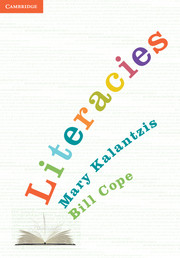Book contents
- Frontmatter
- Contents
- Acknowledgements
- Introduction The work of learning and teaching literacies
- Part A The ‘Why’ of Literacies
- Part B Approaches to Literacies
- Part C The ‘What’ of Literacies
- Part D The ‘How’ of Literacies
- Chapter 12 Literacies to think and to learn
- Chapter 13 Literacies pedagogy
- Chapter 14 Literacies and learner differences
- Chapter 15 Literacies standards and assessment
- References
- Index
Chapter 13 - Literacies pedagogy
from Part D - The ‘How’ of Literacies
- Frontmatter
- Contents
- Acknowledgements
- Introduction The work of learning and teaching literacies
- Part A The ‘Why’ of Literacies
- Part B Approaches to Literacies
- Part C The ‘What’ of Literacies
- Part D The ‘How’ of Literacies
- Chapter 12 Literacies to think and to learn
- Chapter 13 Literacies pedagogy
- Chapter 14 Literacies and learner differences
- Chapter 15 Literacies standards and assessment
- References
- Index
Summary
Overview
This chapter develops a framework for classifying the range of activity types that are productive in a purposeful and robust literacies pedagogy. These ‘knowledge processes’ or ‘things you do to know’, represent experiential, conceptual, analytical and applied approaches to learning. Expert teachers have always woven backwards and forwards between these different ways of knowing and learning. We suggest here that literacies teachers, in collaboration with professional peers, students and the broader community build upon, strengthen, extend and document how each of these four canonical approaches contributes to learning how to mean.
Things you do to know
The historical roots of literacies ‘knowledge processes’
Educators teach literacy – and for that matter thinking, in other school discipline areas as well – in four main ways, the ways we outlined in Part B of this book. We want to suggest that there are valuable lessons to be taken from all four approaches. When each is simplistic in its methods, there is a need for development of a more sophisticated contemporary approach. When each is dogmatic, it needs to be supplemented by methods in the tradition of one or more of the other approaches. We also believe that we need to seriously recalibrate our approaches to literacy teaching to align with contemporary conditions for meaning-making. We can only do this by extending and refining the pedagogical traditions upon which our profession is founded.
- Type
- Chapter
- Information
- Literacies , pp. 355 - 373Publisher: Cambridge University PressPrint publication year: 2012
- 1
- Cited by



